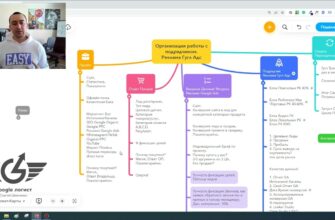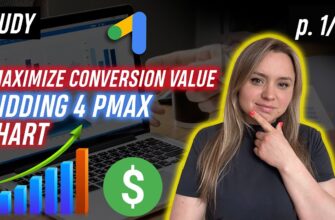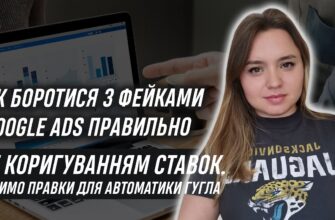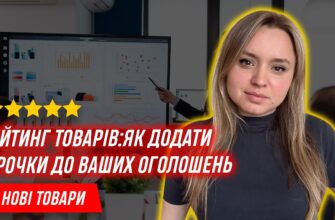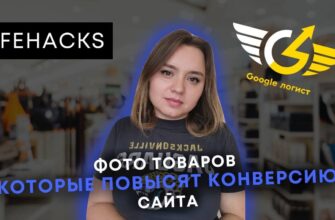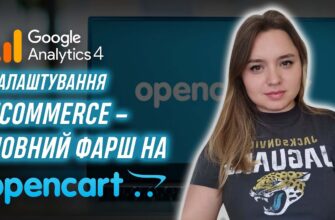- What are the advantages of being a PPC specialist?
- Why is it difficult to work as a PPC specialist?
- Under what conditions can a contextologist work?
- What knowledge should a contextual advertising specialist have?
- Responsibilities of a specialist in setting up contextual advertising
- Studying the CA
- Collecting a semantic core
- Creating ads
- Setting up advertising campaigns
- Managing campaigns that work
- Analyzing the results obtained
- Campaign optimization
- Preparing reports for clients and employers
- What does a PPC specialist do during the working day?
- How much can a PPC specialist earn?
- How to become a specialist in contextual advertising?
The work of a contextual advertising specialist is related to the management of campaigns in Google Ads and other services. His main goal is to attract new visitors to the web resource of the organization. Those who create and customize contextual ads in such a way that they bring as many potential customers to the site as possible are also called PPC-specialists.
In the functions of professionals in this field, includes planning, launching and improving the effectiveness of contextual ads. They develop a marketing strategy, select key queries, compose advertising texts, calculate the budget, analyze user behavior and evaluate the profitability of both individual ads and campaigns as a whole.
What are the advantages of being a PPC specialist?
Many marketers today are developing specifically in the direction of internet marketing because of the undoubted pros that are present in the work of a PPC specialist:
How many calls and sales will I get by ordering contextual advertising from you?
I need to calculate the conversion of my website Describe
the task
in the application
Calculate potential ad revenue Google
contextual advertising calculator
- Versatile activity and continuous development. The first results of work appear only after 1-2 weeks. And to assess the effectiveness of the chosen strategy, it is necessary to analyze the results of the campaign for several months.
- Participation in the development of different sectors of the economy. A professional can work in any sphere – trade, construction, energy, IT or public sector. Additional motivation is involvement in processes that are really important for society.
- Influence on the formation of consumer demand. Advertisements launched by PPC specialists have a significant impact on the product perception of a large number of Internet users. Their habits are largely shaped in this way.
- Perspective. The profession of PPC-specialist will be relevant not only in the modern world, but also in the future. Search engines are constantly evolving, companies allocate to the share of online advertising an increasing part of the marketing budget, which means that specialists in contextual advertising will be in demand for a long time to come.
- Remote work. A contextologist can work from anywhere in the world. All he needs to work is a computer with an internet connection. He can find clients from a wide range of countries and at the same time work on a schedule that suits him, both in the office and at home.
- The profession is in demand among employers. Today, virtually every business needs to promote its goods and services effectively on the Internet. This means that companies constantly need qualified specialists capable of setting up and optimizing advertising campaigns.
- A decent level of remuneration. This is especially true of experienced professionals capable of achieving high results. Large companies often try to lure the best specialists to them by offering them attractive conditions.
Why is it difficult to work as a PPC specialist?
- Working with large amounts of data. Working with contextual advertising requires a good analytical mind and the ability to work with numbers. People with humanitarian inclinations may find such a volume of “dry” data boring and tedious. The work of a PPC specialist is not so much creativity as painstaking analysis of information.
- There is a high level of responsibility and stress. The contextologist directly manages the company’s advertising budgets. And if something goes wrong, it is he who is responsible for the money wasted. Unfortunately, even with experienced specialists, not all campaigns are equally successful. In some cases, creativity may fail, in others, the wrong audience may be chosen. Working with advertising is always a certain risk and stress. It is important to be prepared for the fact that sometimes the results will be lower than expected.
- Sedentary lifestyle. Like most modern office professions, the work of a PPC specialist involves long hours in front of a computer. This can have a negative impact on your health if you don’t take time for physical activity. Regular exercise, walking and warming up during the working day will help to reduce this negative effect.
- It is necessary to constantly learn new things. Internet marketing is one of the fastest growing fields. New tools appear regularly, the requirements of advertising systems change, and new trends are born. In order to always remain a sought-after specialist, you have to constantly keep up with all these changes and improve your skills. In addition, there are particularly complex niches (e.g. medicine or finance) which require a deep immersion in the specifics and compliance with many restrictions.
Under what conditions can a contextologist work?
Having obtained this profession, you will be able to choose the most suitable format of work for yourself, depending on personal preferences and the requirements of the employer:
- Agency work. In this case, the contextologist usually does not interact with clients directly. Communication is taken over by the project manager. However, working in-house, the specialist is obliged to take on all the projects that are handed over to him. But he does not need to look for new clients himself – this task is performed by the sales department or even the customers themselves come on recommendations.
- Freelancing. Working on freelancing, a PPC specialist has more freedom in choosing projects and can agree only to those that interest him. However, you will have to look for customers on your own and constantly take care of the flow of clients. A freelancer takes a big risk in periods when there are no orders or few of them. But if a specialist earns a good reputation, he will be recommended by colleagues and former clients. To find customers, you can use specialized exchanges like Upwork or rely on “word of mouth”.
- Inhouse. In this case, you work in the company’s staff and are engaged exclusively in promoting its products or services. This allows you to thoroughly study the peculiarities of the business and industry and become an expert in your niche. This option is suitable for those who prefer stability and in-depth work on one project. However, if you like variety and frequent changes of topics, there is a risk of losing motivation in the conditions of working with only one brand.
What knowledge should a contextual advertising specialist have?
- Fundamentals of working with advertising accounts and analytical systems;
- Services and programs that help to visualize data arrays and make reports (Google Data Studio, MS Excel, Google Tables, etc.), formulas and information upload mechanisms necessary for working with them;
- Basic principles of call tracking – building reports, listening to calls, creating samples by specified parameters;
- Basics of using end-to-end analytics;
- Basic design skills – in some firms, contextual advertising specialists develop creatives;
- Minimal command of English will help to quickly learn about novelties and familiarize with instructions, because all modern trends are first discussed in foreign sources;
- Terminology of digital marketing. On the basis of this conceptual apparatus to a large extent builds the work of a specialist in setting up contextual advertising;
- Literate oral and written speech. When creating ads and extensions, you should use texts that are free of stylistic and grammatical errors;
- Usability basics. Basic knowledge of what is UX/UI design, sales triggers, what structure of the site most inspires a buyer to leave an order;
- Knowledge of media advertising mechanisms is usually an added advantage.
Responsibilities of a specialist in setting up contextual advertising

The range of responsibilities can vary depending on the company and the project, but there are a number of key tasks that are found almost always:
Studying the CA
Before launching an advertisement, a specialist must make a detailed study of the goods or services he will promote. To do this, he communicates closely with the customer, finding out all the nuances: the characteristics of the product, its strengths and weaknesses, the unique selling proposition (USP).
In parallel, the specialist segments the target audience, determines its characteristics, needs and “pains”. This is necessary to then create the most relevant ads that will attract the attention of potential buyers.
Collecting a semantic core
Based on an analysis of the product and the target audience, a specialist compiles a list of keywords and phrases for which ads will be shown. The task is to select such queries that are highly likely to be entered by potential customers who are at the search stage and ready to buy.
But keywords alone are not enough. It is equally important to define minus-words – queries for which the display of ads will be blocked, as they are not directly related to the product being promoted. This allows you to cut off untargeted traffic and spend your advertising budget more effectively.
For example, for advertising an online electronics store such words can be “phone repair” or “used iPhone”, because people who enter such queries are unlikely to want to become customers of the store.
Creating ads
When the semantic kernel is ready, the specialist starts creating the ads themselves. This is a creative task that requires skills in copywriting and marketing. In a limited number of characters, you need to be able to clearly present the product, emphasize its advantages, and formulate an attractive offer for the target audience.
It is important that the text be concise, informative and original. Simply copying competitors’ advertisements is not enough – this is not how a brand will be remembered by potential clients. A contextologist often works on ads in conjunction with a team: he or she sets TORs for copywriters and advises designers on the creation of visual materials.
Setting up advertising campaigns
A contextologist should be able to customize campaigns in such a way that the requirements of the customer or management are taken into account as accurately as possible. For example, if the goal is to attract an audience interested in gadgets, but not to spend the entire budget in a short period of time, the specialist will choose the optimal settings for targeting and budget allocation.
The process of setting up advertising campaigns includes many aspects:
- Targeting, that is, selecting the target audience based on various parameters — interests, demographics, etc.
- Setting up the time and conditions for displaying ads.
- Working with product feed for advertising online stores – loading and updating data on products.
- Budget allocation between different campaigns and within each of them.
- Bid management – determining the price per click or other targeted action. Here it is possible both manual management and automatic, when the system optimizes bids itself within the limits set by a specialist.
Work with bids deserves special attention. Despite the fact that advertising systems assign them automatically by default, the final decision is always up to the specialist. It should be taken into account that the display of contextual advertising is a kind of auction, where advertisers compete with each other. Too low rates will lead to the fact that ads simply will not be shown. Too high – will quickly exhaust the budget without proper return.
How many calls and sales will I get by ordering contextual advertising from you?
I need to calculate the conversion of my website Describe
the task
in the application
Calculate potential ad revenue Google
contextual advertising calculator
Managing campaigns that work
The work of a contextual advertising specialist does not end with its launch. On the contrary, it is only the beginning. What’s next is constant monitoring and optimization of campaigns across a multitude of parameters:
- Checking the moderation status of ads and solving possible problems.
- Control of budget spending, compliance of actual costs with planned ones.
- Analysis of conversions and user behavior on the site after switching from advertising.
- Call tracking, if phone calls are important for the business.
Analyzing the results obtained
When advertising has been running for some time and statistics have been accumulated, the contextologist starts analyzing its effectiveness. This is a complex task, requiring the consideration of many factors. You need to take into account:
- The number and value of conversions and leads from each campaign. The analysis compares performance between different channels and the dynamics within a single channel over time.
- Calculation of return on advertising investment (ROI). For this purpose, end-to-end analytics are often used, allowing you to track the customer’s path from clicking on an ad to purchase.
- Evaluating the effectiveness of individual keywords: whether they bring targeted traffic or users who are not ready to buy.
- Analyzing the audience coming from advertising, especially if it is a question of phone calls. This is where call tracking tools that record conversations for further study can help.
Campaign optimization
After receiving the analysis data, a PPC specialist makes decisions on optimizing advertising campaigns. He determines which approaches and tools work better, and which can be abandoned. For example, additional keywords can be added to effective ads.
And vice versa, if some keywords lead to unsuitable audiences, they can be added to the list of minus-phrases, so that ads for them are not shown. Also at this stage, the specialist can revise the distribution of funds between campaigns, in order to direct most of the budget to the most effective.
In addition, as part of optimization, the specialist often collaborates with the marketing, web development, and design team. Together they work on improving the site, creating new objects for ads, building a common marketing strategy. After all, the effectiveness of contextual advertising depends not only on the settings of the campaign, but also on the quality of the landing pages the user lands on.
Preparing reports for clients and employers
Whether a professional works for an agency, freelance or in-house, they need to report on their performance on a regular basis. The format of the report may vary depending on the requirements. Sometimes a screenshot from Google Analytics is sufficient, but more often a more detailed sample of key performance indicators (KPIs) is required.
Various tools are used to create reports – Google and Excel spreadsheets, specialized services like Looker Studio or Microsoft Power BI. If call tracking is used as part of a campaign, a separate report on calls from advertising is prepared.
For projects with end-to-end analytics, summary statistics from this system are generated. The main thing is to provide data in a clear form that allows you to evaluate the effectiveness of the work done and make a decision on further optimization.
What does a PPC specialist do during the working day?
To understand what a contextual advertising specialist does, it is necessary to get acquainted with the list of special programs in which he or she works on a daily basis:
- Google Ads (previously used the name “Google Adwords”) – a web service for creating ads in Google’s search engine, on YouTube video hosting, and on numerous partner sites that are part of the search giant’s media network;
- Google Analytics – a tool that allows you to conduct detailed analytics of websites and smartphone applications, as well as to evaluate the quality of the landing page and the dynamics of the conversion rate;
- Google Key Planner – a service with which it is convenient to select search queries;
- Google Tag Manager – a program designed to place counters of advertising systems on the website, as well as other useful scripts.
In addition to working with the above services, a contextologist must daily compare the effectiveness of several ad variants, experiment with advanced targeting, test different audiences and creatives.
It is also necessary to be patient and diligent enough to perform routine actions. After all, marketing involves not only the flight of fancy in the process of creating slogans and search for new ideas.
Attention! Work in the field of advertising is primarily the systematization and analysis of large amounts of information, the ability to identify patterns and draw conclusions for further optimization of advertising campaigns.
How much can a PPC specialist earn?
The level of payment for the work of a contextologist is primarily influenced by his experience and the amount of professional skills and knowledge, as well as the number of supervised projects.
The salary of a beginner in Ukraine is usually between 8 and 12 thousand hryvnias.
Mid-level specialists can count on income from 12 to 20 thousand hryvnias, and highly qualified contextologists, who show outstanding results and are team leaders of a team of specialists, earn a minimum of 20 thousand hryvnias.
How to become a specialist in contextual advertising?

For those who have a truly harmonious combination of passion for creativity and analytical skills, it is not difficult to learn a profession and find a job to your liking. How to become a PPC specialist?
- Familiarize yourself with Google’s manual on how to set up ads. In this representative and really useful source you can find the most up-to-date information about new tools and algorithms.
- Learn the basic Analytics and AdWords services, without which it is impossible to work with Google advertising. The help section has all the information you need for beginners about these tools. Additional knowledge can be found in blogs and forums where professionals share working techniques and interesting tricks.
- Take an online test and get a certificate. A credential plays a major role in the process of getting a job as a contextualist, so it’s important to take the time to get one.
- Take contextual advertising courses. It is better to choose comprehensive training, where they teach you from the basics, so that the future specialist in contextual advertising setup can then work immediately in the profession without gaining additional experience. On many courses, students are given practice on their own or other people’s projects.
- Run ads for your project. There is nothing better for a beginner PPC specialist than practicing in real conditions. In order not to drain the budget of future clients at once, try practicing on your own project. Don’t have your own site? Ask friends or acquaintances – many will probably agree to have you set up ads for them for free for their portfolio.
- Find a mentor. Study vacancies on the market or contact any marketing agency. At first you can work for free or for a small fee in the position of Junior Specialist. The main condition is constant training and practical advice from more experienced contextologists.
Fulfilling this simple list of actions is enough to solve the verification test and successfully pass the interview in a serious company. And whether you will stay in it to work after the probation period depends only on your persistence and determination. By the way, we have a vacancy for a PPC-specialist in our company. If you meet the above criteria, welcome to the team.





